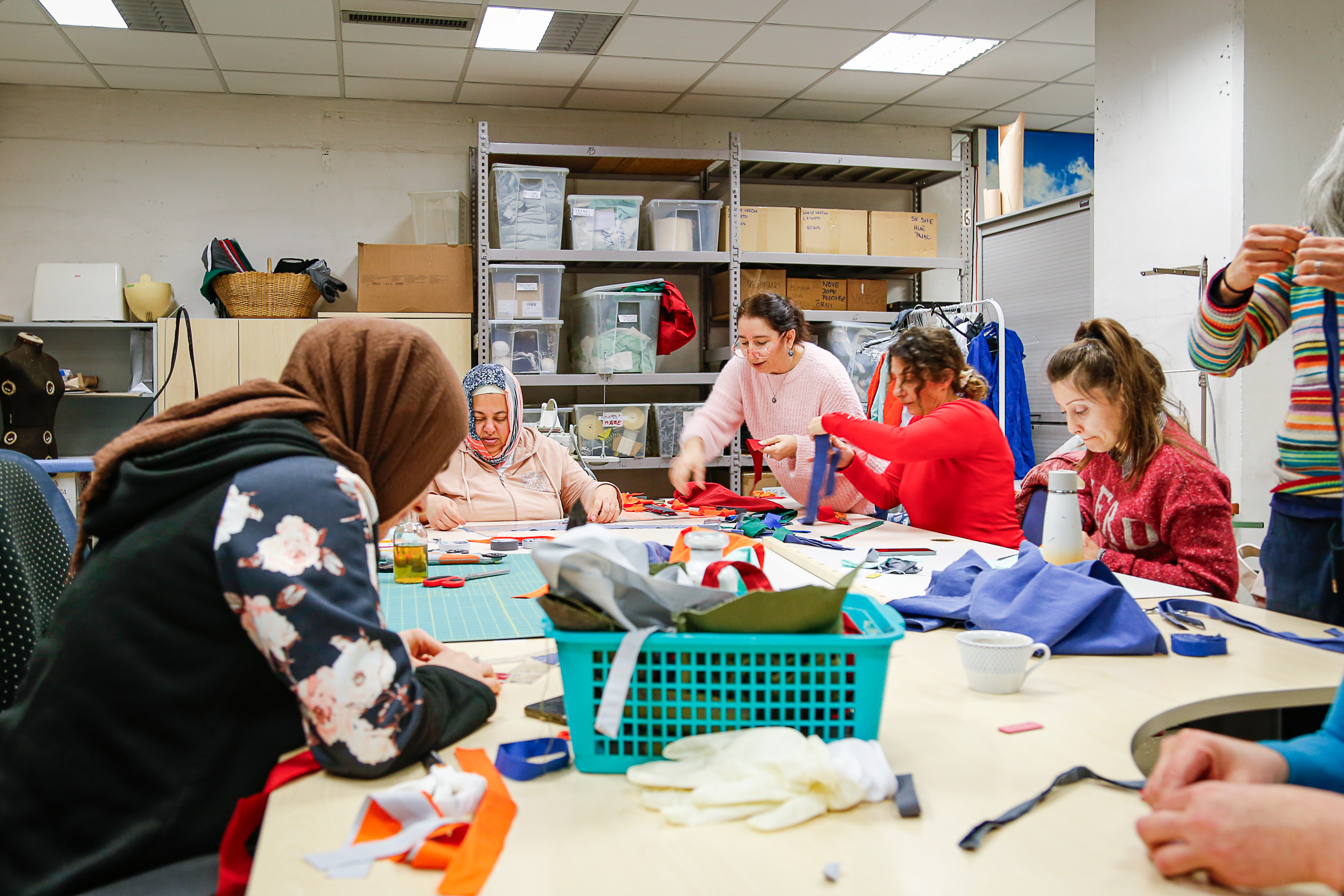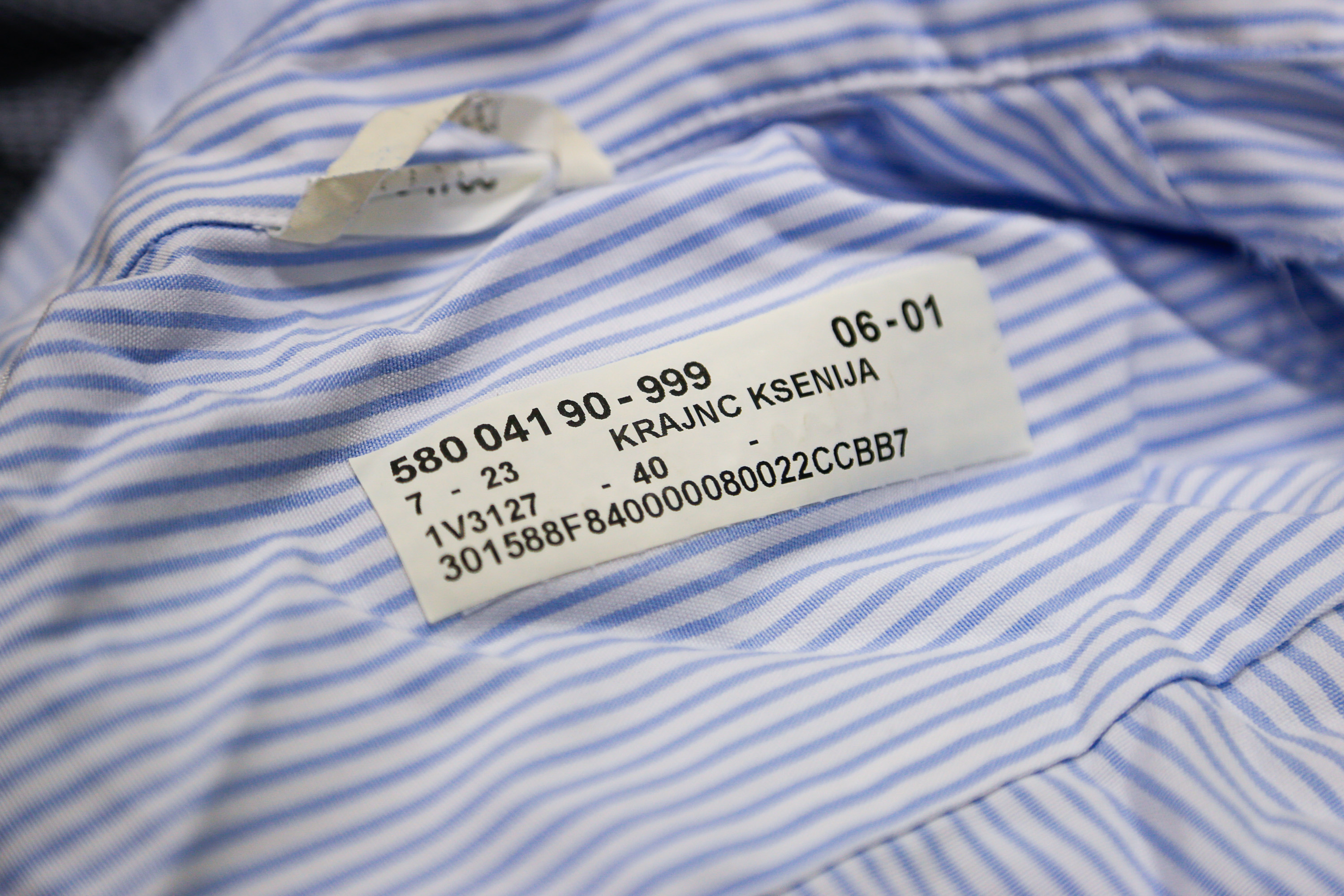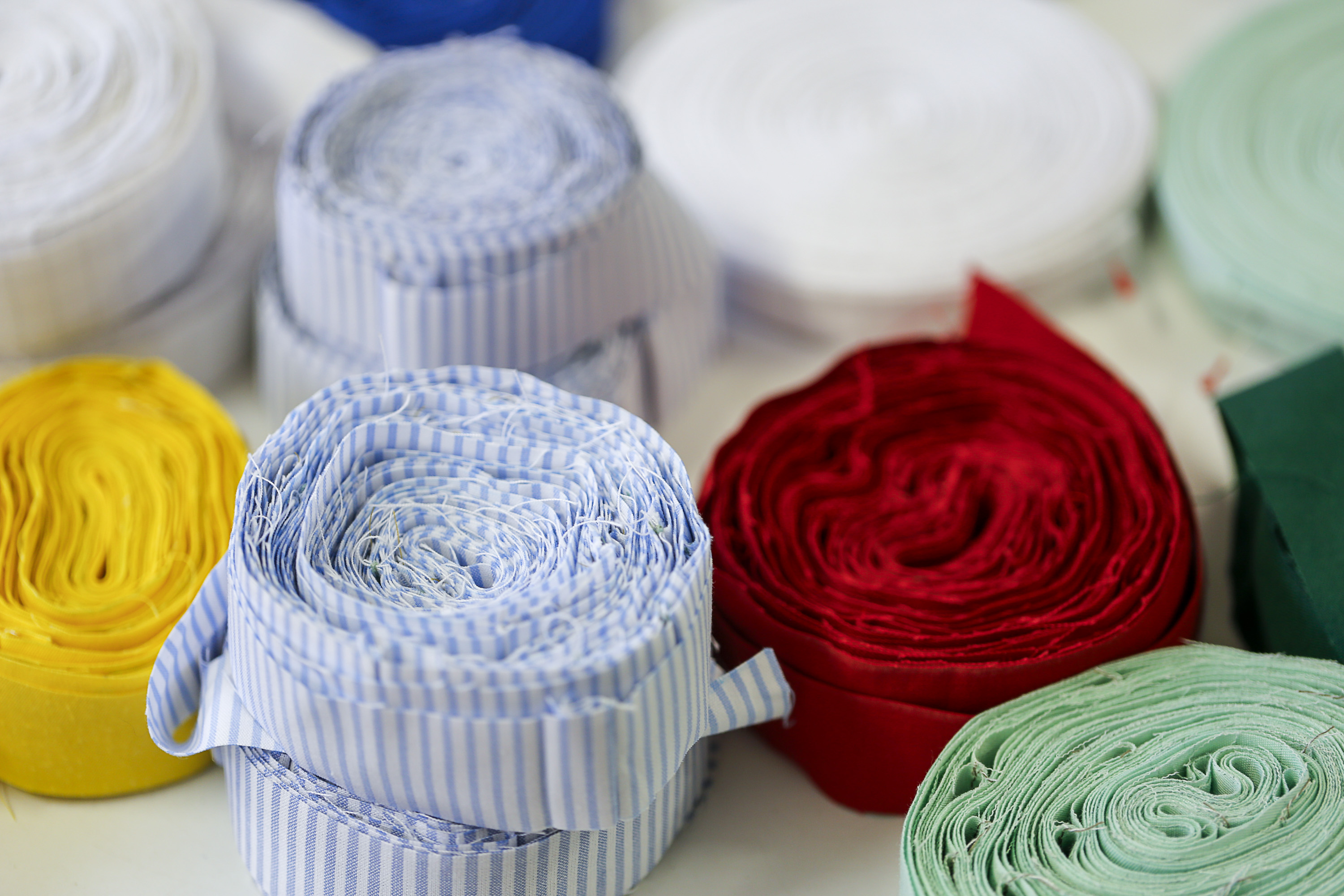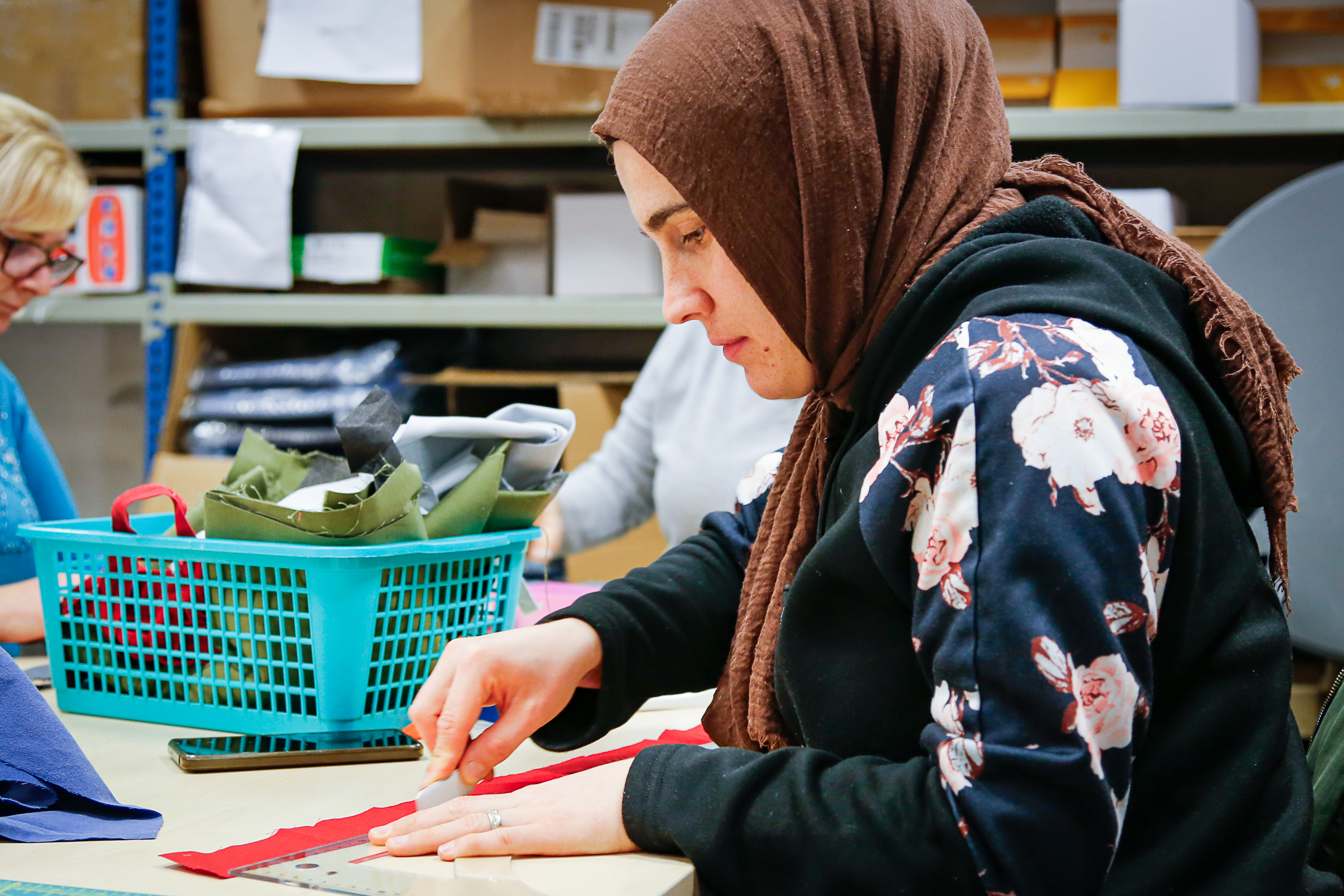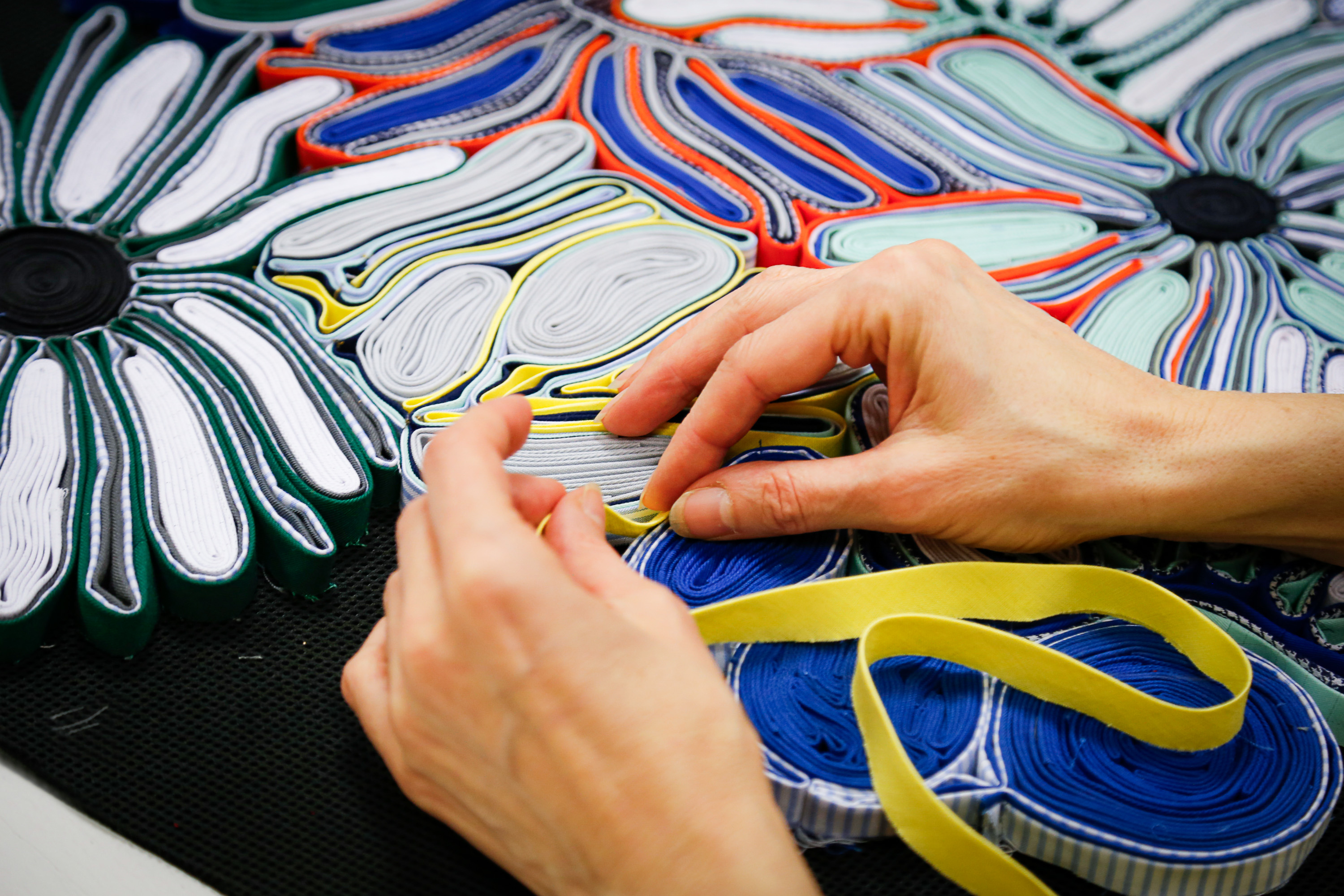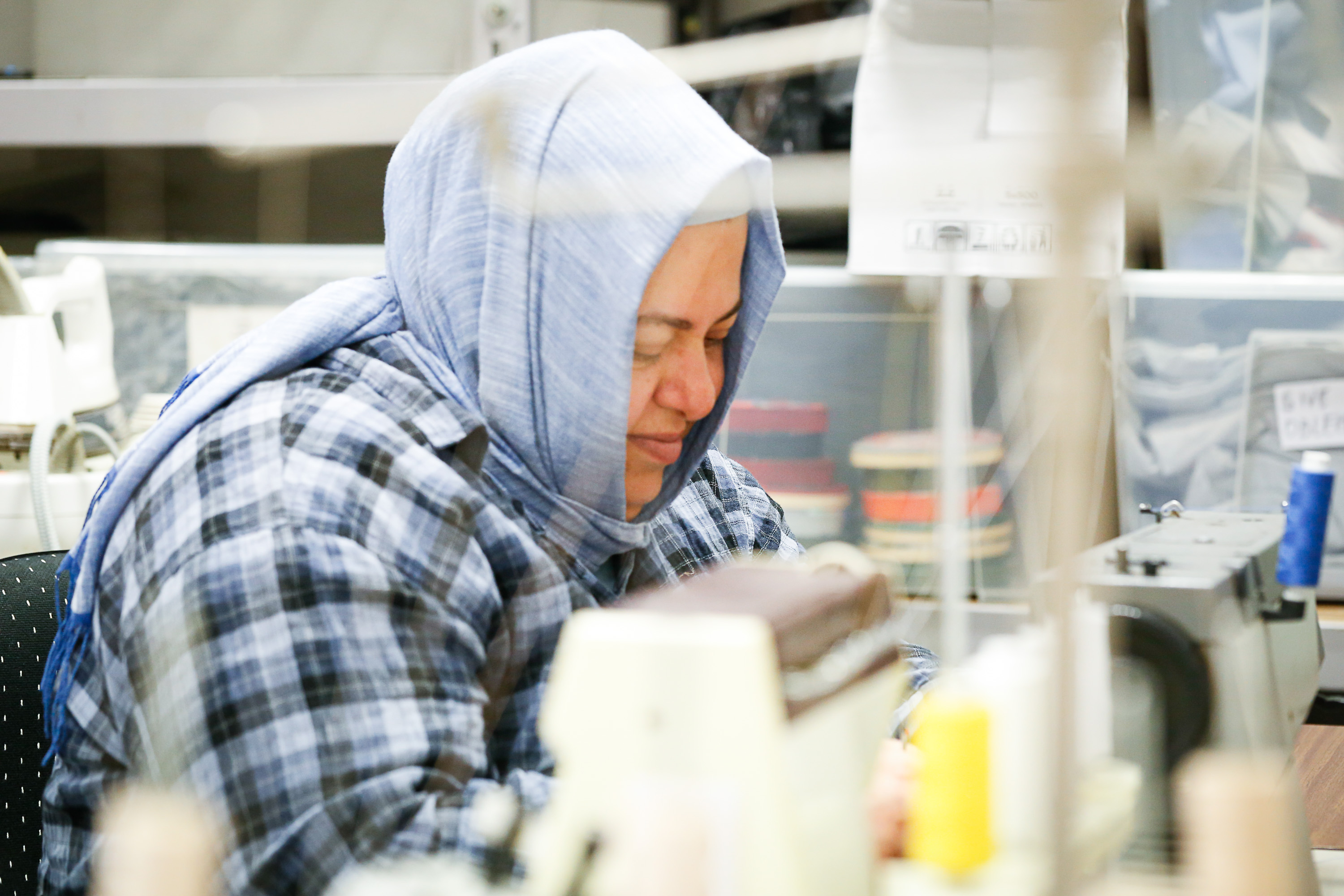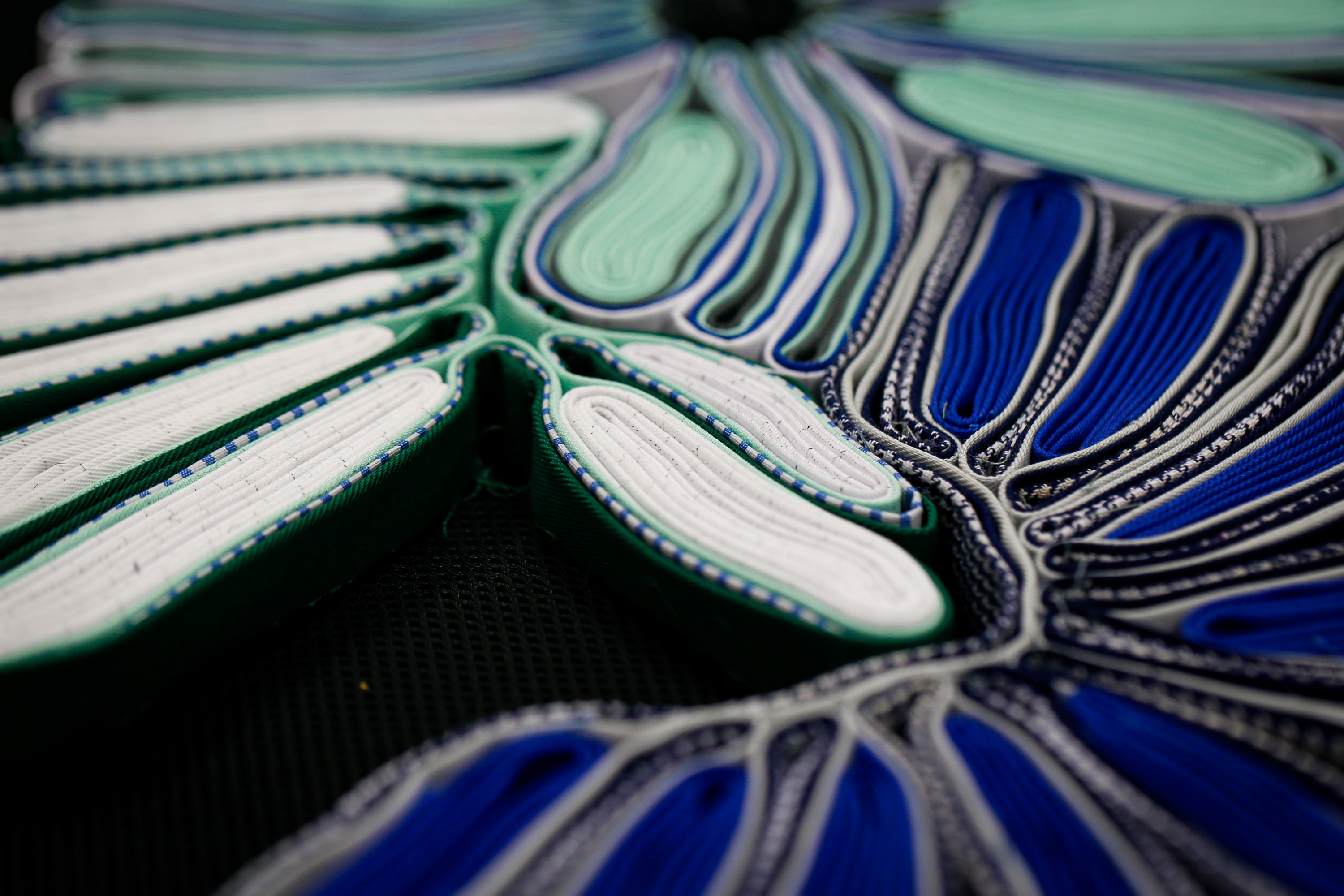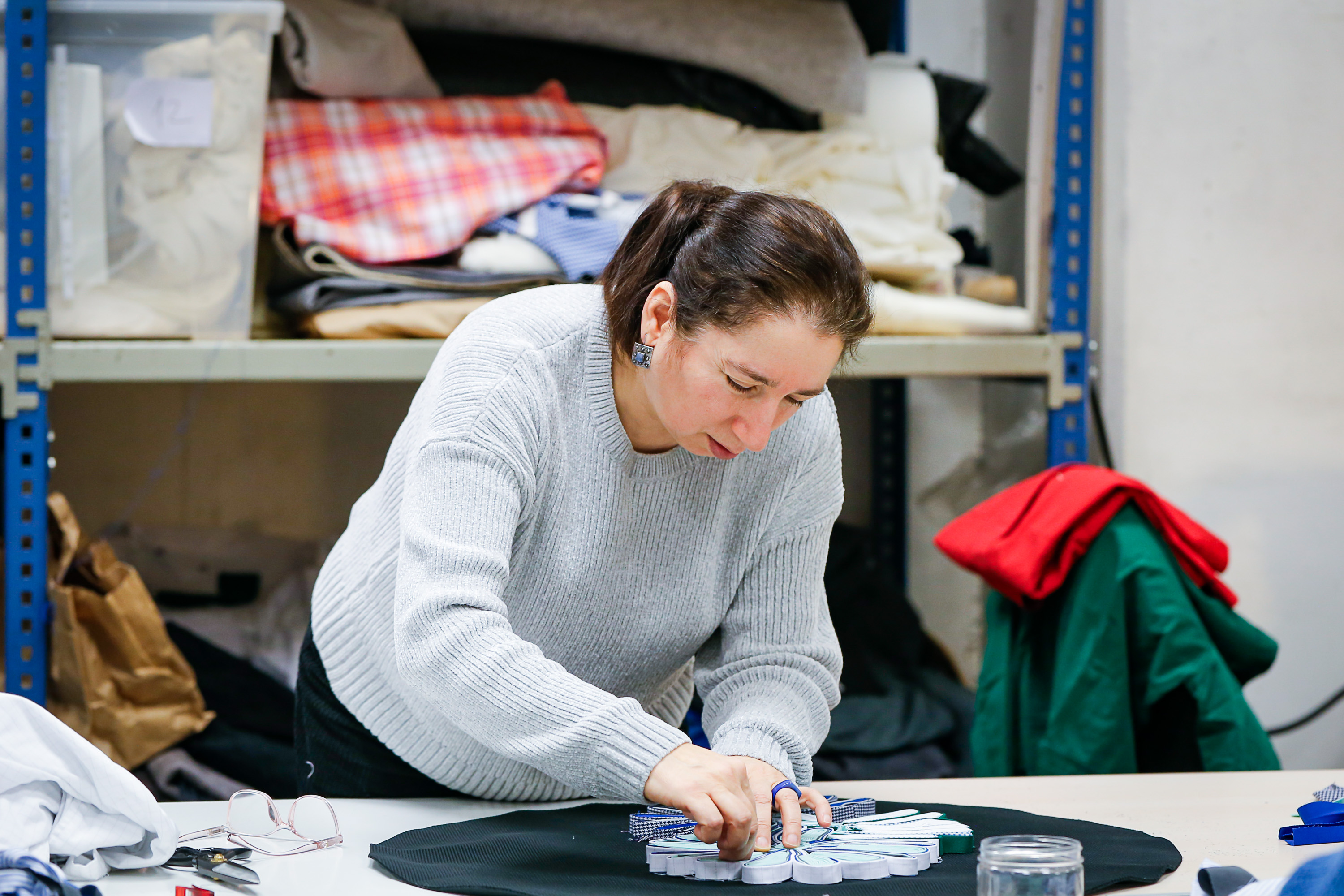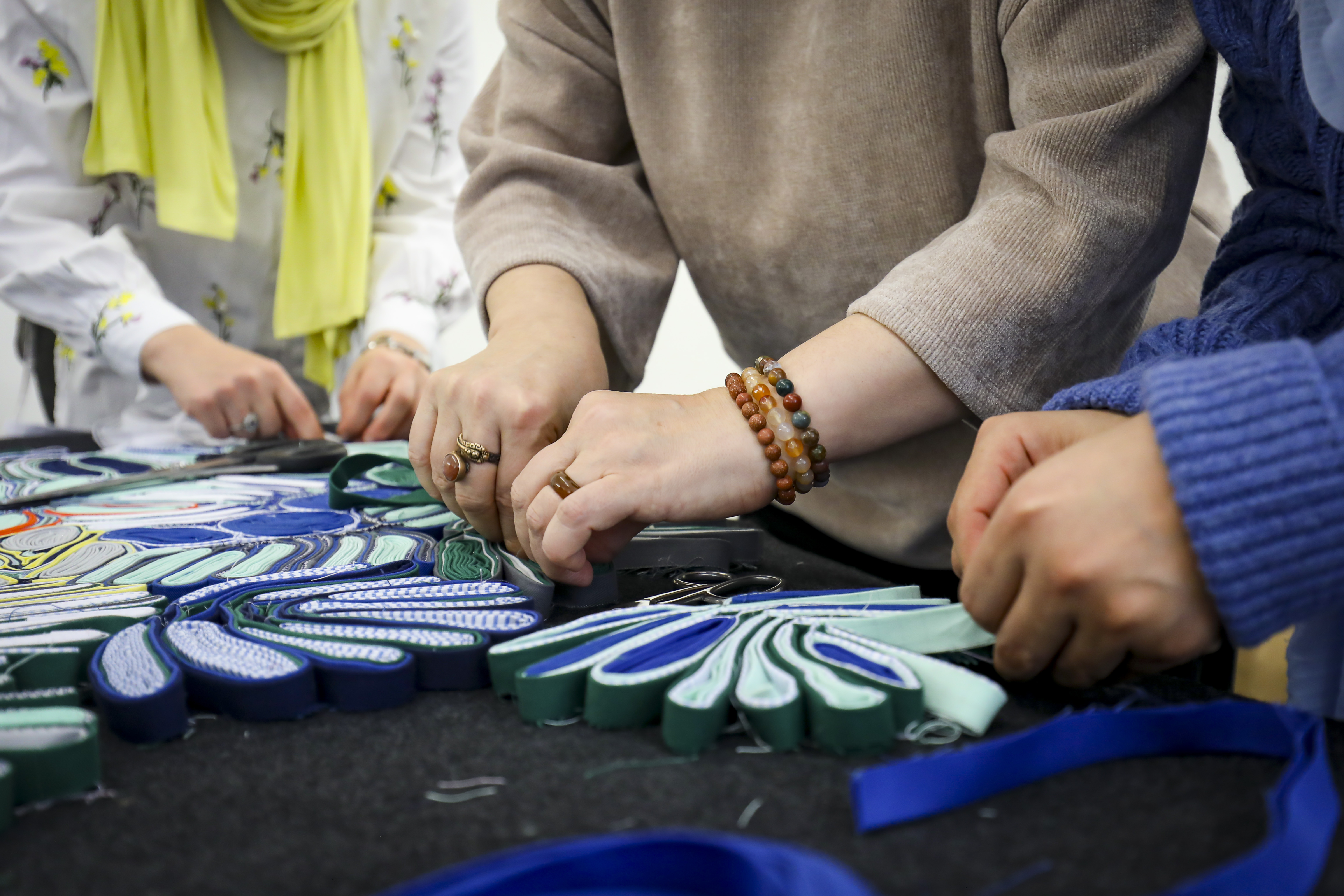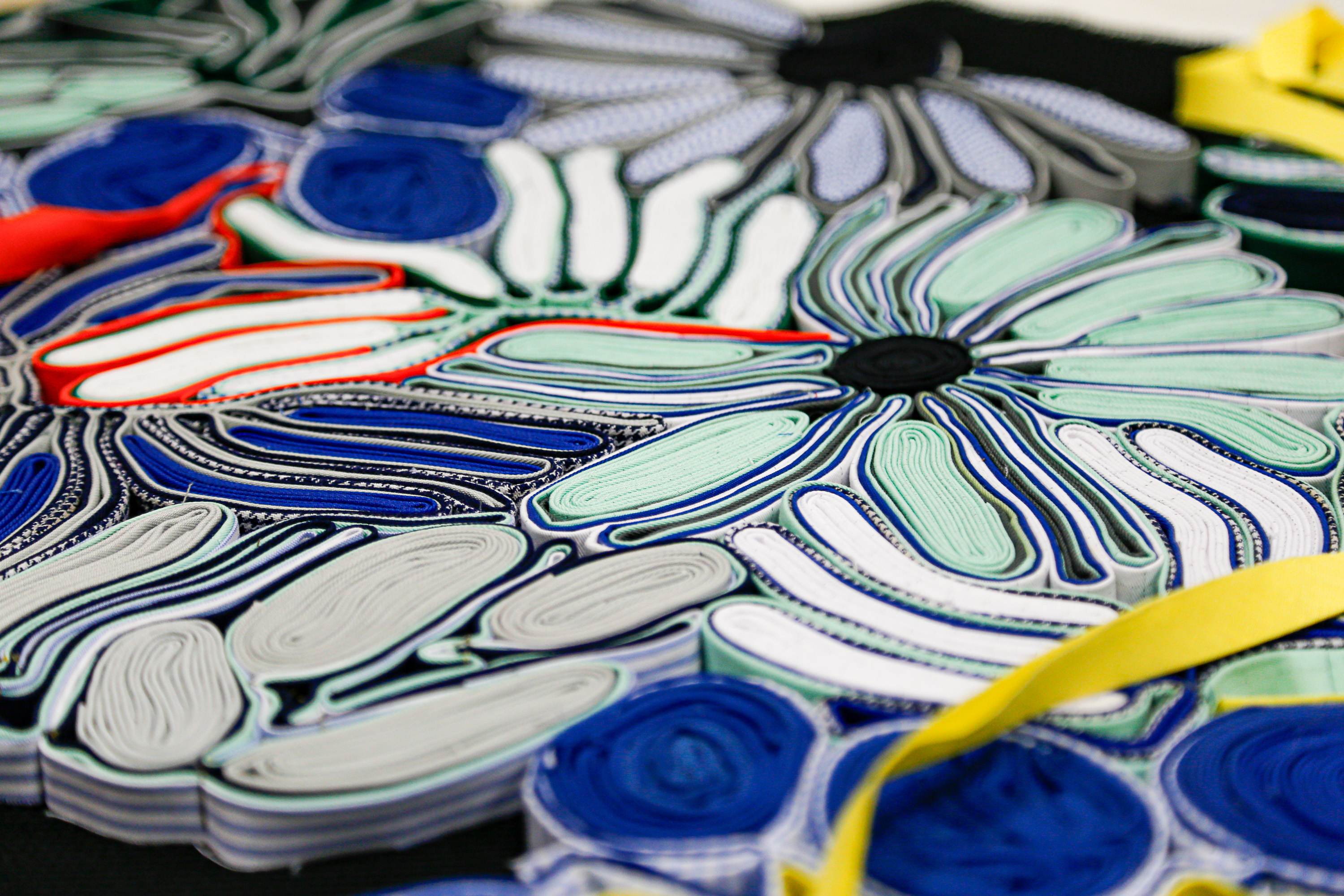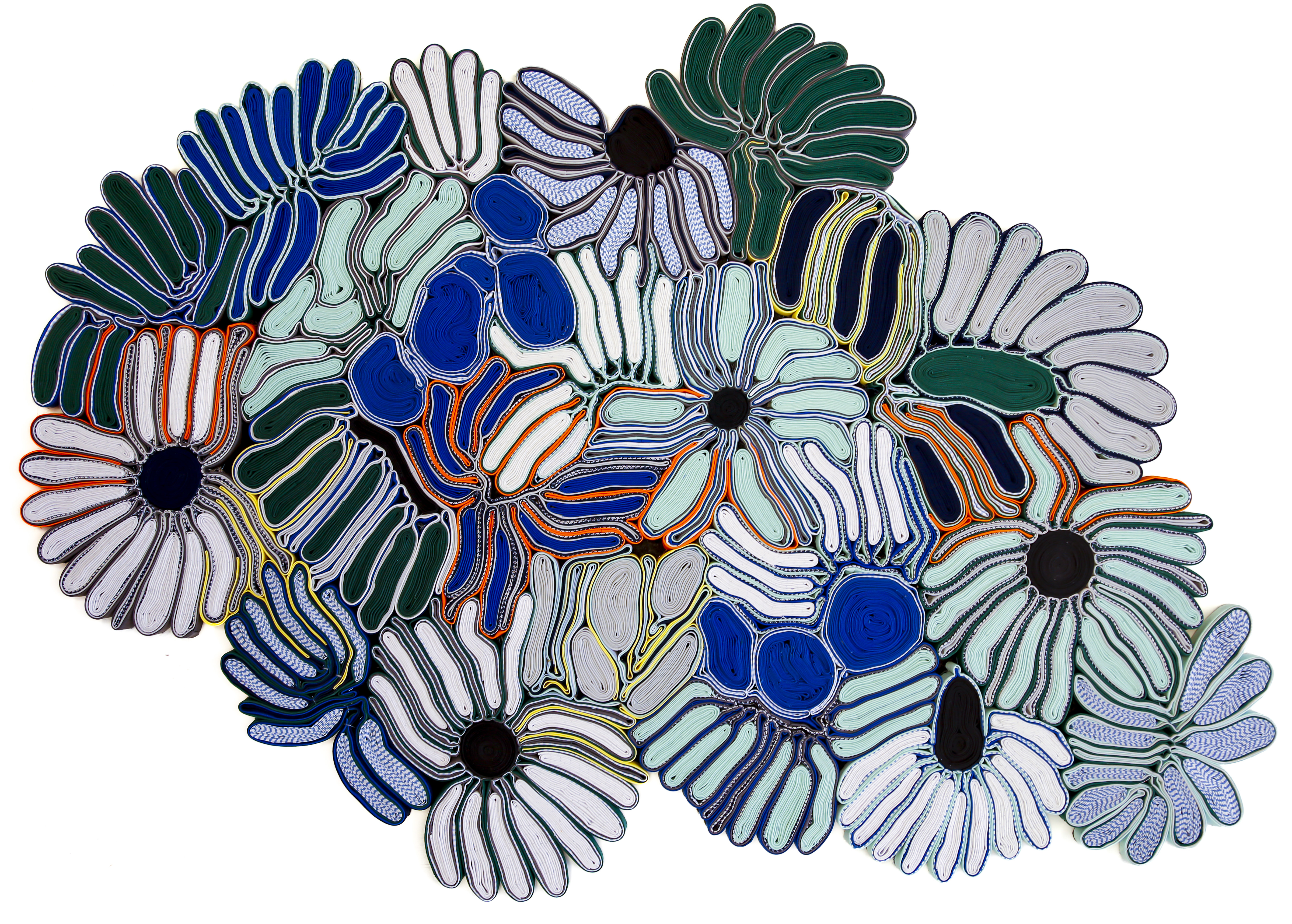
For the past fifteen years, the Oloop collective has collaborated with and co-created products alongside various groups of women. With great sensitivity, they connect contemporary design with manual textile practices, engaging participants from diverse backgrounds—most of whom are not designers. Gardens of Forgotten Power are wall tapestries created using a distinctive authorial technique: folding, twisting, and layering cut pieces of discarded workwear in various colors and qualities within a collective creative process as part of a social activation program for migrant women, in collaboration with the Jazon Institute.
The work brings together elements of social and sustainable design. It addresses the public with a story about giving new life to discarded clothing and the transformative potential of design—capable, through deconstruction, of envisioning and creating new pathways, aesthetic possibilities, and practical value. In addition to its ecological dimension, the piece carries a strong social message by involving a particularly vulnerable group of migrant women in the making process and offering them opportunities to strengthen their craft and social skills.
The tapestries are made from pre-washed and cleaned discarded workwear, cut into strips of various lengths. The making takes place in organized groups, within a guided collaborative design process, through which the product is both structurally and visually finalized.
The textile industry is one of the major contributors to environmental burden. In the dominant discourse, textile waste is often seen merely as an environmental or logistical issue. The wall tapestries Gardens of Forgotten Power, made entirely from discarded workwear, demonstrate the potential of rejected garments to become carriers of aesthetic, conceptual, and symbolic value. Because they embody a powerful story, they also foster emotional attachment, encouraging long-term use.
The works also emphasize psychosocial support and social engagement. In creating the textile pieces, women are empowered as they recognize their existing skills and acquire new craft knowledge. Because the product is collective, they strengthen their communication abilities and their command of the Slovenian language. Textile also functions as a therapeutic material: its tactility and the bilateral coordination of movements involving both hands activate broader brain capacities and evoke states similar to meditation. The repetitive movements stimulate serotonin release, which has a calming effect, acts as an analgesic, and uplifts the mood.
Work / Wall tapestry
Material / Discarded cotton work clothes
Techniques / Folding, twisting, layering
Dimensions / Various, 90 × 120 cm
